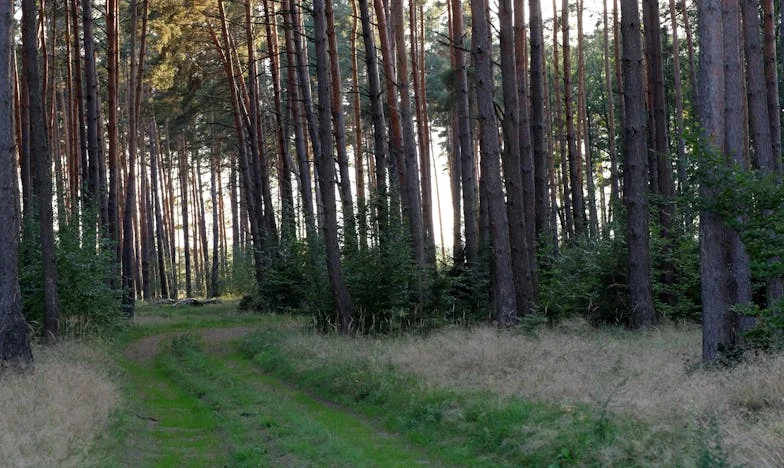When I Learned to Say No: A Lakehouse Summer and the Boundaries That Saved Me
“You really can’t be serious, Emily. It’s just for a few nights!” My sister-in-law’s voice cut through the early morning silence, echoing in the tiny kitchen of our newly bought lakehouse. I stared at her, my coffee cooling in my trembling hands, the scent of pine and damp earth just outside the window. The sunrise painted the lake gold, but all I felt was a tight knot in my chest.
It was supposed to be our escape. David and I had dreamed for years about buying a place far from the noise of Chicago, somewhere we could heal, reconnect, maybe even start over. We found the little house on Lake Geneva—a fixer-upper, but to us, it was a miracle. We closed on it in May, and by June, we’d packed up the car, hearts full of hope.
But the fantasy dissolved fast. It started with one weekend—David’s parents wanted to see the place. Then my brother called, asking if he and his kids could come up for the Fourth of July. There was always another reason — a birthday, a reunion, just wanting to get away from the city heat. Our calendar filled with names and dates, each visit overlapping the last. I’d wake up to the sound of kids running down the hallway, the clatter of pans in the kitchen, the chatter of a dozen voices where I’d hoped for silence.
David, ever the peacemaker, would put his arm around me and say, “It’s family, Em. They just want to spend time with us.”
But it wasn’t just time. It was our groceries disappearing before the week was up. It was piles of towels, muddy footprints, and the endless, impossible task of keeping the peace as old arguments flared up over trivial things: who got the best bedroom, who used up the last of the coffee, who left the canoe untied.
One night, after yet another exhausting dinner where David’s mother criticized the way I made potato salad, I found myself standing outside, barefoot in the wet grass. I didn’t even remember leaving the table. I just needed to breathe, to be away from the constant noise. The stars blinked above, and I realized I hadn’t felt truly alone in weeks.
The breaking point came the day my own mother showed up, bags in hand, without calling. She walked in like she owned the place, rearranging the kitchen, questioning every choice we’d made—right down to the color of the bathroom towels. I felt invisible in my own home. When I tried to talk to David, he just sighed, rubbing his temples. “Let’s just get through this summer,” he pleaded. “It’s not worth the fight.”
But I was fighting. Every day, I was fighting for air, for peace, for some small fragment of the dream we’d built together.
I snapped one Saturday morning, when David’s cousin and her boyfriend appeared at our door with a case of beer and no warning. The house was already bursting—my mom in the guest room, my brother’s kids camped on the couch. I opened the door, heart pounding, and before I could even say hello, she swept past me, calling out, “We’re here! Hope that’s okay!”
That was it. I walked into the backyard, sat on the edge of the dock, and cried until my face ached.
That night, I told David I couldn’t do it anymore. “I feel like a stranger in my own life. This is our home, but I have no say. I never wanted this—never.”
He was quiet for a long time. Then he said, “Maybe we’re afraid to disappoint everyone except ourselves.”
The next morning, I wrote a message and sent it to both sides of the family. My hands shook as I typed: “We love you, but we need time to ourselves. Please check with us before coming. We’re limiting guests to one weekend a month.”
The fallout was immediate. My mother called, furious. David’s sister sent a passive-aggressive text. There were arguments, guilt trips, accusations that we were selfish and ungrateful. For days, I felt like the worst person in the world.
But the house changed. The quiet returned. David and I sat on the porch with coffee, watching the sun rise. We had real conversations again about our future, about what we wanted, about children, about the life we’d nearly lost in the chaos.
It took weeks for the anger to fade, but slowly, something else took its place. Respect. My mother apologized, eventually. David’s family learned to text before showing up. And I learned that setting boundaries wasn’t the same as shutting people out—it was inviting them in, on my terms.
That summer, I found myself. I learned that peace isn’t something you find on a map—it’s something you fight for, every day, even when it means disappointing the people you love.
I still wonder: Why is it so hard to say no to the people closest to us? And at what point does protecting your peace become an act of love, not just for yourself, but for everyone you care about?
